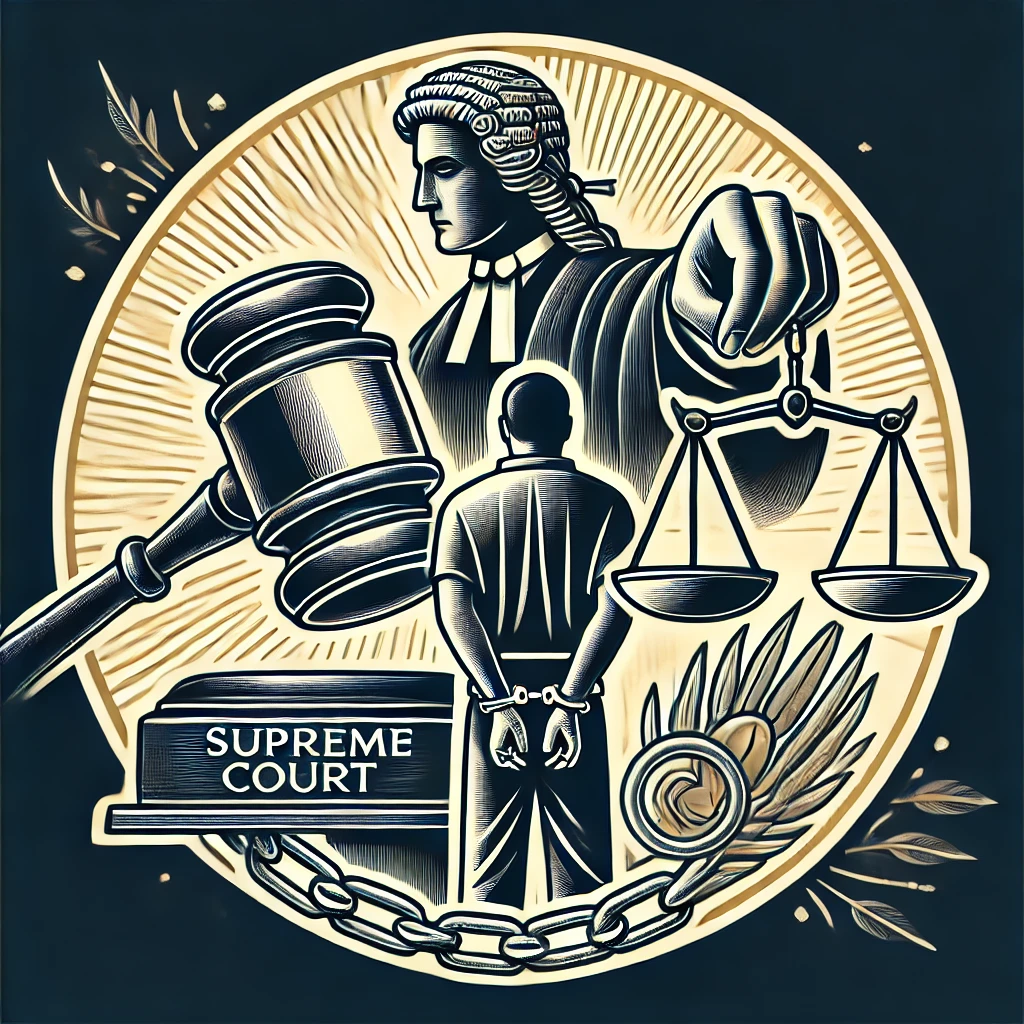
Supreme Court Reprimands Haryana Police for Handcuffing Detainee
In a sharp rebuke, the Supreme Court of India has criticized the Haryana Police for handcuffing and chaining a detainee to a hospital bed, calling it a violation of human dignity and fundamental rights.
Incident and Legal Arguments
The case came to light when a detainee, accused in a financial fraud case, was seen handcuffed and chained to his hospital bed while receiving medical treatment. A public interest plea was filed against this act, highlighting the inhumane treatment of detainees in police custody.
The Haryana Police defended its actions by citing security concerns, stating that the detainee had a prior history of attempting to escape custody. However, the petitioner’s counsel argued that even high-risk prisoners are entitled to humane treatment under Article 21 of the Constitution, which guarantees the right to life and dignity.
Court’s Observations and Decision
The Supreme Court expressed strong disapproval, stating that handcuffing should not be a routine measure and must only be used in exceptional circumstances with judicial authorization. The bench referred to previous landmark judgments, which held that indiscriminate handcuffing violates human rights.
The court directed the Haryana government to issue revised guidelines to law enforcement agencies, ensuring compliance with constitutional safeguards. It also warned that future violations could invite contempt proceedings against erring officials.
Impact on Law Enforcement and Prisoner Rights
This judgment serves as a reminder that law enforcement agencies must balance security concerns with human rights principles. Legal experts argue that this ruling will reinforce accountability in custodial treatment and may lead to reforms in how detainees are handled during medical emergencies.
While police departments claim such measures are sometimes necessary for security, the ruling establishes that no individual—irrespective of the severity of the charges—can be deprived of their basic dignity.












comments